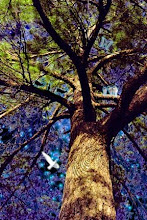Numbers: 18 million
Founder: Guru Nanak (1469-1539 C.E.) was the first of Sikhism's ten Gurus, a lineage of holy teachers that continued until the end of the seventeenth century. The Gurus are understood to be the mediators of divine grace.
Main tenets: The term Sikh is derived from the Sanskrit word for "disciple" or "learner." Sikhs are those who are disciples to the Guru. Sikhism originated in the Punjab region of northwest India, where it drew on elements from Bhakti Hinduism and Islamic Sufism to develop into a distinctive religious tradition in its own right. Sikhs believe that liberation from the karmic cycle of rebirths occurs in the merging of the human spirit with the all-embracing spirit of God. Their religious worship involves contemplation of the divine Name. The ultimate deity is known by several names: Sat (truth), Sat Guru (true Guru), Akal Purakh (timeless being), Kartar (creator) and Wahi-Guru ("praise to the Guru"). By concentrating on God's Name (or many titles), one conquers the ego and unites with God.
Known as the "religion of the householder," Sikhism emphasizes the family, and advocates living in the world without being worldly. Moral purity is considered the chief basis of religion. There is no priesthood per se, but there are official readers of scripture.
The tenth Guru, Guru Gobind Singh, instituted the Khalsa brotherhood, in which initiates are required to wear five distinctive symbols: uncut hair, a comb, a steel wrist bangle, a sword, and short underpants. Not all Sikhs belong to this disciplined fellowship, but many do obey the principle rules of Khalsa. Guru Gobind Singh also required all male Sikhs to take the name Singh (meaning "lion") and all female Sikhs to take the name Kaur ("princess"). These measures give Sikhs a strong sense of communal identity, symbolized by the characteristic turbans and beards worn by Sikh men.
Main sacred text: The compilation of the Sikh scriptures, the Adi Granth, was begun in 1604 by the Fifth Guru. The last of the ten Gurus, Guru Gobind Singh, announced that he would be the last personal Guru and that thereafter, Sikhs were to regard the Adi Granth (Guru Granth Sahib) as their teacher. This sacred book is considered the living embodiment of all ten Gurus and is therefore the focus of worship in all Sikh temples and local gurudwaras, or sanctuaries. The Adi Granth comprises three main parts: a long poem by Nanak summing up the elements of Sikhism, a collection of Ragas, or songs composed by the first five Gurus, and a mixed collection of commentaries elaborating on the Ragas together with hymns of many Hindu saints and Sufi mystics.
Principal center: The Golden Temple of Amritsar in India.
